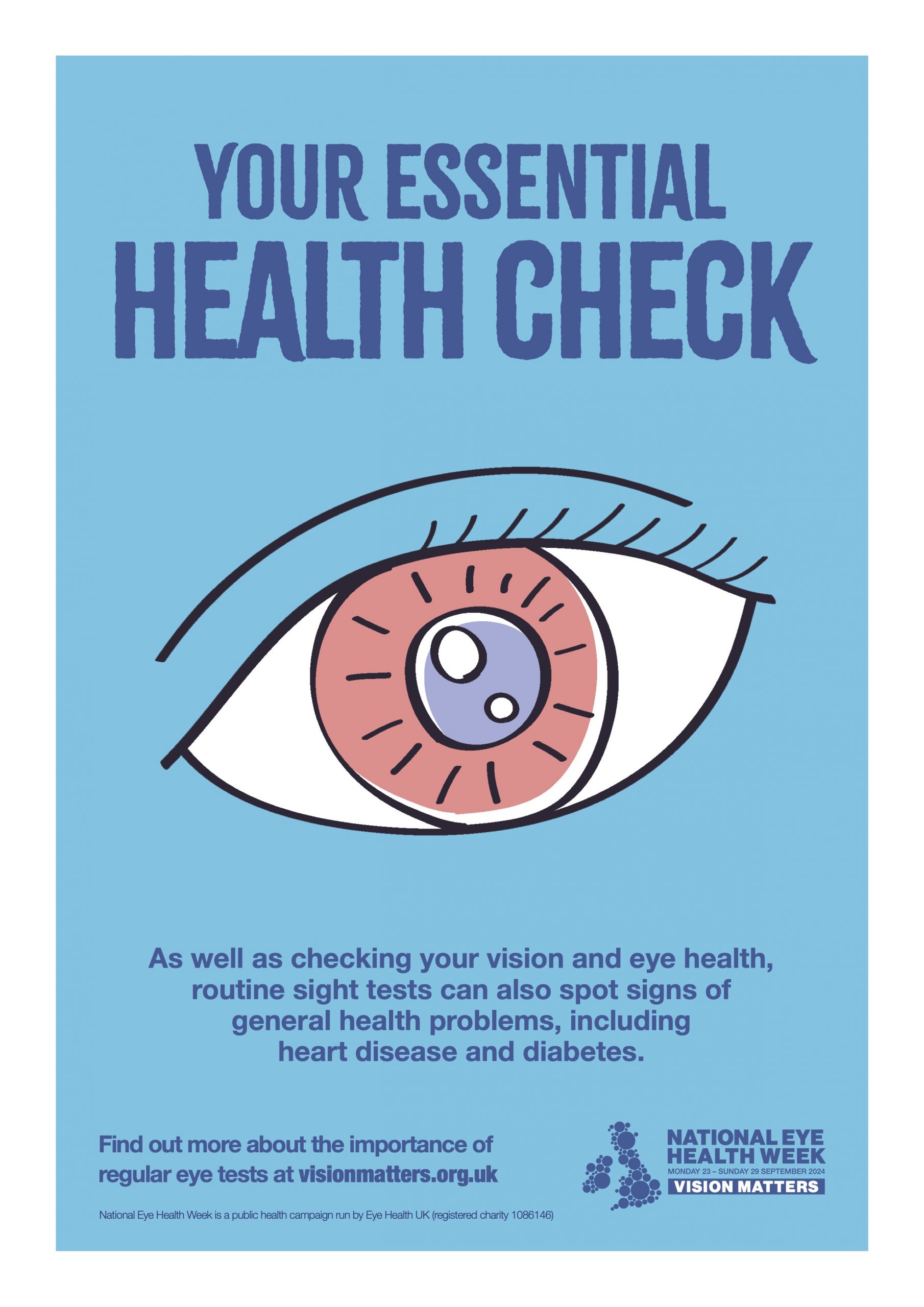NEHW survey highlights sight test health risk

Campaign highlights associated health risks
A OnePoll survey of 2,000 adults, conducted on behalf of Eye Health UK to mark National Eye Health Week (NEHW) 2024 (23-29 September), reveals that people may be putting their physical and mental health at risk by failing to have regular eye examinations.
The research, conducted between 6 and 10 September 2024, found that 36 per cent of respondents had not had an eye examination in the last two years, and four per cent couldn’t remember the last time they had had one.
Men were the most likely not to have had an eye examination within the last two years: 44 per cent compared with 36 per cent of women and 18 per cent of over-65s.
More than half (55 per cent) of people living in households with an annual household income of less than £10,000 had not had an eye examination in the last two years – versus one third (33 per cent) living in a household with an annual income of £90,000+.
Using the adults polled as representative of the adult UK population, the charity estimates that some 19 million adults in Britain are failing to have routine eye examinations.
Eye Health UK, the charity behind NEHW, is raising awareness that as well as identifying problems with vision, routine eye examinations can detect other health conditions such as high blood pressure (hypertension), raised cholesterol, heart disease, brain tumours and risk of stroke.
A new study from Johns Hopkins University has also revealed that up to one in five dementia cases are directly linked to vision impairment, the charity pointed out.
David Cartwright, optometrist and chair of Eye Health UK, said: “Sight-threatening eye disease and conditions like hypertension can present with no, or few, noticeable symptoms. If caught early though they can be treated, or successfully managed, before they become a problem.
“High Street optometrists play a crucial role in improving health opportunities for all. As well as caring for the nation’s eye health and preventing avoidable sight loss, optometrists can direct people to get the help they need for a wide range of illnesses, including the 400,000 adults in the UK estimated to be living with undiagnosed heart failure and 88,000 people living with undetected brain tumours.”

Hugo Fairbanks Weston with his girlfriend Francesca wearing eye patches after his surgery
The charity has shared the story of Hugo Fairbanks Weston, who had a brain tumour diagnosed following an eye examination at his local opticians practice. It is also promoting the fact that eye examinations are free on the NHS for children, over-60s and those on income-related benefits.
David dded: “NHS-funded provision covers a range of eyecare services. Free sight tests and optical vouchers are available for many, including those on low incomes and people at increased risk of poor eye health due to age or medical history. People unable to leave home unaided are entitled to free domiciliary [at home] eye tests; whilst integrated care boards or local NHS area teams commission translation and interpretation services ensuring a patient’s language or communication skills are not barriers to eyecare.”
Eye Health UK’s research also found that 49 per cent of respondents said that the quality of their vision affects their ability to do, or enjoy, daily activities like household chores, driving, reading and hobbies.
The charity is reminding the public this NEHW that as well as having regular eye examinations, once every two years, unless advised otherwise, there are a number of other ways to protect, or improve, vision such as leading a healthy lifestyle, protecting eyes from UV, spending time outdoors to reduce the risk of myopia progression.